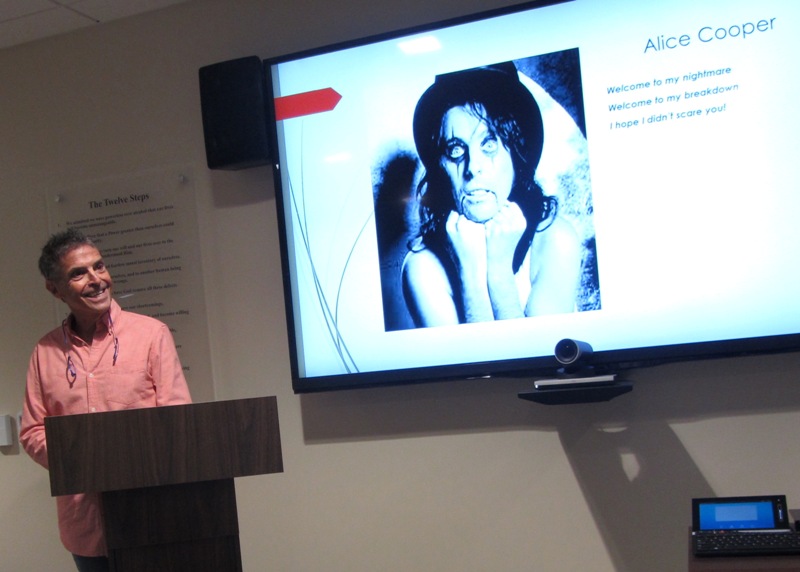
At the Betty Ford Center in Los Angeles, author Gary Stromberg talked about and read excerpts from The Harder They Fall: Celebrities and Addiction, a book he recently co-wrote with Jane Merrill.
Relating the accounts of 21 well-known celebrities in recovery through first-hand interviews, the book’s bare-all stories convey how they crashed and burned from alcoholism or drug addiction. The courage is a product of the celebrities’ willingness to uncover their darkest moments to show how they ultimately found a path of sustainable recovery.
Although he works today as a publicist for the Blackbird Group while serving on the board of Faces and Voices in Recovery, Stromberg is best known for his public relations and entertainment career in the 1960s and 1970s. During that period, he co-founded Gibson & Stromberg, a large and influential music PR firm that represented The Rolling Stones, Pink Floyd, Muhammad Ali, Barbra Streisand, Ray Charles, The Doors, and Elton John.
The Fix asked Stromberg whether he thought it was more difficult for celebrities to achieve sustainable recovery.
“When celebrities are trying to achieve sustainable recovery, there is a lot more pressure on them,” Stromberg said. “Sycophants and yes-men, willing to give them virtually anything they want to remain in their circle, surround them, and this makes it much harder to get humble … Without drugs and alcohol, some of them don’t have the courage to face this constant pressure.”
The questions then turned to celebrities after they achieve sustainable recovery. The Fix asked Gary Stromberg if, upon achieving recovery, do celebrities have a responsibility to be role models? Are they required to set an example that others can follow?
“Celebrities don’t have to be role models in recovery, but they often take on that responsibility,” he said. “In my own experience, I have been amazed to see how far many would go to help others. I have found that celebrities in recovery tend to be incredibly generous with their time and efforts when it comes to being of service.”
Stromberg said he was surprised that well-known celebrities would step forward to reveal the underbellies of their darkest days. Worried about questions of anonymity and violating the tradition of 12-step programs of remaining anonymous, Stromberg contacted the Central Office of Alcoholics Anonymous and was given the all-clear, so long as no specific 12-step program was mentioned.
Stromberg also discussed the stories of many of the celebrities in the book, ranging from baseball player Doc Ellis and comedian Richard Lewis to author Annie Lamott and singer Alice Cooper. The anecdotal stories helped to illuminate the ins and outs of the stages of the disease.
In the end, the discussion of The Harder They Fall provided powerful insight into the rocky path from the disease of addiction to the freedom of long-term recovery.
